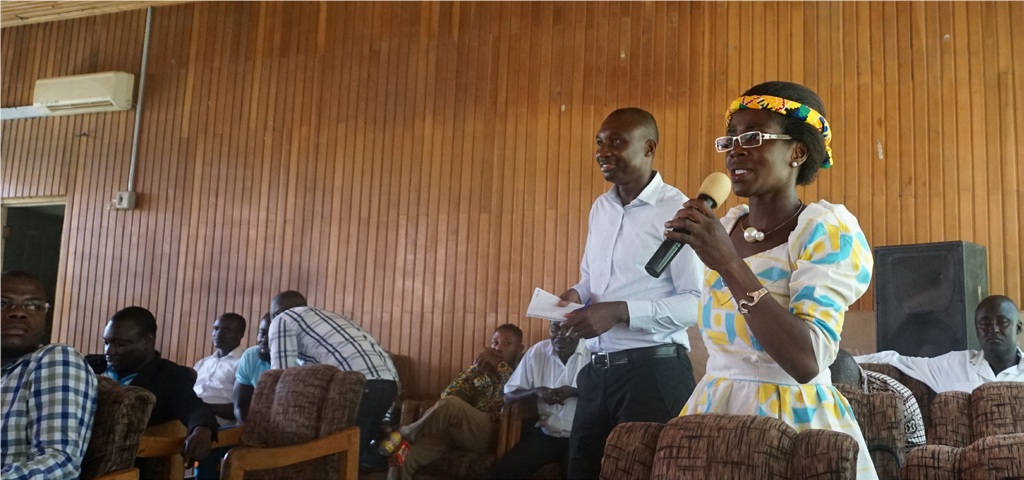Countries:
Ghana, Burkina Faso | Partners: Stockholm Environment Institute (SEI) and Queens University, Canada
Ethiopia | Partners: Water and Land Resource Centre (WLRC), Ethiopia; University of Oxford, UK; and International Food Policy Research Institute (IFPRI)
Duration: 2015-2020
Consortium lead: Oxford University, UK
Donor: UK Aid Direct, UK Government's Foreign, Commonwealth & Development Office (FCDO)
Published on: 01/01/2017

REACH is a nine-year programme (2015-2024) led by Oxford University with an international consortium of partners and funded with UK Aid Direct from the UK Government's Foreign, Commonwealth & Development Office. IRC was involved in two REACH projects.
The aim of the ‘Empowerment in WASH index’ (EWI) tool was to measure empowerment in the water and sanitation sector to advance inclusive water security and gender equality. This assessment and monitoring tool aims to close the evidence gap on the links between WASH interventions and the empowerment and well-being of individuals. The tool was developed by Stockholm Environment Institute (SEI) and Queens University, Canada. IRC was co-lead of the project together with SEI.
The two study regions were Banfora in Burkina Faso and Asutifi North District in Ghana, where poverty and water security challenges threaten human wellbeing. EWI was piloted in Banfora.
IRC collaborated with the Ethiopian Water and Land Resource Centre (WLRC), the University of Oxford and the International Food Policy Research Institute (IFPRI) in research for the Fragile Environments Observatory of the REACH programme on the role of Sustainable Land Management (SLM).
IRC carried out three activities in two watersheds in Amhara, Ethiopia - a baseline assessment, well upgrading and monitoring - to measure how SLM programmes relate to interventions promoting groundwater utilisation, and how the benefits of groundwater development for the rural poor can be secured and maximised. Uptake of improved wells proved to be low. The assessment also showed that the main driver for well upgrading is irrigation, but once present, 40% of the wells were also used for drinking water, although it was unsafe. Even in areas with extensive SLM programmes, the conclusion was that significant subsidy or other forms of support will be needed to secure water for livelihoods and household use.
Lessons from the partnership research regarding gendered barriers to SLM and access to clean water and sanitation have been integrated into SLM in the Integrated Landscape Management and WASH (ILMWA) project which will benefit up to 65,000 people in the Kunzila region of Ethiopia.
A tool to ensure we leave no one behind while working to achieve SDG 6. Read more...
Systematic or systemic inequalities are grounded in our mindsets; in the way, we think, in the way we plan, in the way we see people, and in the way we interpret the rights to water and sanitation. Read more...
A novel Empowerment in WASH Index is presented, which was piloted in Banfora, Burkina Faso. Findings show importance of household- and community-... Read more...
Why is rural water is different for communities, schools, and healthcare facilities across characteristics of scale, institutions, demand, and... Read more...
Government should take the lead in making sure WASH services are empowering; NGOs should support government in monitoring empowerment in WASH... Read more...
Lessons from research in the REACH programme in Ethiopia about securing water for livelihoods and household use with special attention to gender. Read more...
How do Sustainable Land Management programmes relate to interventions promoting groundwater utilisation, and how can the benefits of groundwater... Read more...
Investigating the effectiveness of improved well head protection and the uptake and safe installation of improved lifting devices to minimise water... Read more...
Government should facilitate participation of users in decisions on water and sanitation; development partners should support the government in... Read more...